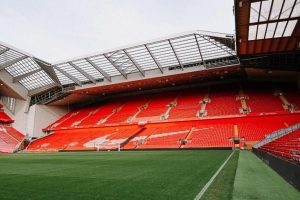Magnetic North plans to go global

DIGITAL design agency Magnetic North is looking at tie-ups with multi-nationals to drive international projects.
Chief executive and majority shareholder Lou Cordwell said she was considering future partnerships to take the Manchester firm into new areas over the next five years.
Magnetic North, founded 14 years ago, is also keen to move from offering pure design services to retaining intellectual property to generate new revenues.
Speaking to TheBusinessDesk.com, Ms Cordwell said: “There are some things down the line we’d like to do where we would need scale and partnership – a situation where they bring all kinds of incredible things to the table and we bring design innovation. So we’re going to explore interesting partnerships over the next year. That might help us to achieve things of scale, such as international opportunities.
“There are lots of interesting oportunities in areas such as transport and retail where digital is important but we’d need someone on the other side of the table that has 7,000 employees in 13 nations. More and more of my time will be spent reaching out to these people and finding these opportunities.”
The company has worked for Google, Channel 4, Arup, Marketing Manchester and the Co-op’s NOMA property scheme. It is well known for building the online archive for the BBC’s Desert Island Discs and is on the corporation’s digital design roster. Most recently it completed a digital project for the children’s channel CBBC. The firm has also been involved with Manchester’s urban gardening festival Dig the City, working on Plot which explores the idea of creating private garden spaces, booked by the hour, within city centres.
Discussing the culture at Magnetic North she said: “We have 25-30 people who enjoy what they do. We’re big enough that we’re still here 14 years on. We’re profitable and people love turning up to work and enjoy what they do. For us the balance is commercial and creative. The reason for being is to make things that move things on but we understand we have to make money to pay the bills and staff.”
Cordwell, who is a board member of Greater Manchester’s local enterprise partnership, was reluctant to discuss revenues and future targets, stressing she had other priorities.
“You ask yourself, what do you want out of life? If it’s not a materialistic pursuit of money, what is it? In my case it’s to work with people I value, make things I’m proud of, have a culture where people enjoy what they do… but at the same time you have to make enough money. Nobody’s coming here and not getting paid.
“We business plan and start every year knowing where we want to end up, but it’s not just a number. There’s a number there, but also a whole set of other metrics. There might be someone we really want to work with or a type of project we really want to deliver.”
She said she’s worked on a succession plan for the business but would not entertain selling up. “We never got into this with an exit strategy. We spoke to consultants seven years ago who mentioned this term ‘exit strategy’. I didn’t know what it meant and when they explained it was like hearing someone say, ‘when are you going to sell your baby?’.”








